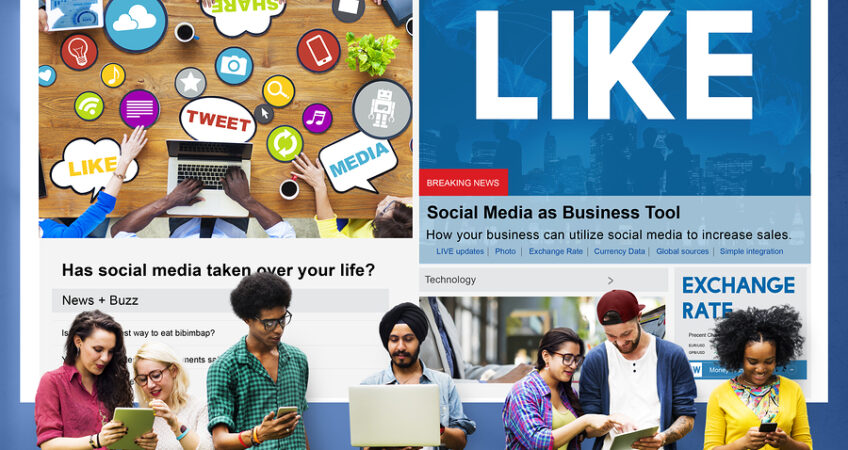
Organic Social Media Interactions
Social media is everywhere. People of all demographics use social media to share, like, and communicate with others. It also makes for a great, and often necessary, platform for businesses to interact with their customers. Social media is now one of the primary sources of information on businesses and organizations. Users can post reviews, make suggestions, and ask questions. Any business that ignores this opportunity will surely fall behind.
In this blog, we’ll discuss different ideas on how to effectively develop organic interaction with your customers. For simplicity’s sake, we will focus on Facebook. However, similar ideas and strategies can be applied to almost all social media platforms. In addition, we will not be discussing paid advertisement on Facebook.
Facebook Insights
Before we discuss effective organic strategies, we need to go over some tools to track different types of interactions. Facebook offers a wide variety of insight metrics to help you understand what is working on your page, and what isn’t. Arguably, the three most important metrics for organic views are Page Views, Reach, and Post Engagements.
Page Views
Like Google Analytics, the Page Views metric tracks how many people have viewed your page’s sections over a specified period. The tool also tracks other demographics like age, gender, geographical location, and device. These metrics can help market segments and locations to focus your efforts on.
Reach
The reach metric tracks total post impressions. An impression is when one of your posts appears in someone’s newsfeed, and they scroll past and see it. Impressions can’t tell you how people reacted, if they clicked through to your page, or how long they spent looking at it, but it gives you an idea on how far your posts can go.
Post Engagements
Post engagements tracks how people react to your posts. It covers the amount of times people clicked on your post to read more, and how many times it was liked, commented on, and shared. When compared to the Reach metric, you can start to get an idea of the effectiveness of your posts. If you aren’t getting a high enough engagement to reach ratio, you may need to rethink the content of your posts.
Content Marketing
Developing a good rapport and interacting with followers is indeed vital to the success of a page. But, before this can happen, you as a page must put out content that is interesting and engaging enough to be commented on. This type of marketing, called Content Marketing, involves the creation and sharing of material related to, but not necessarily promoting, your brand. The purpose of Content Marketing is to build interest in your product or service. Creating this content is the most difficult aspect of social media. This difficulty carries over into the development of a good website, as a sizable portion of your social media content will link back to it.
The most important consideration is your target audience. Why did they come to your page? What kind of value will they get from being there? How do you want them to feel when they leave? Your audience (your potential customers) are the most important factor in creating content. Work to develop something that they would be interested in and they will come.
Customer Interactions
Now that we have an idea of how we can track our actions on Facebook, we need to discuss what we should actually be doing. In an age of hyper connectivity, potential customers look for the chance to interact with the companies they are interested in. This can come in many forms and will change as you gain popularity and followers.
Gaining Early Ground
When diving in to social media, you need to hit the ground running. Create several posts and pieces of content to populate your page so people have something to look at when they first start visiting your page. These posts should be spread out over a few days and can include anything from industry tips and tricks to links to your website.
Early traffic is also generated from liking, commenting on, and sharing posts from larger pages that are similar or complimentary to your own. Early followers will come to your page and recognize its value in an area they already hold interest in. These individuals are also the type to like, comment, and share your own posts, which drives your page’s views and likes.
Later in the Game
After a while, your page will start to develop a rhythm and a series of dedicated followers and commenters. At this point, you can reduce your interaction with other pages and focus on interacting with your own followers. Pages who can engage people well will grow steadily and stay strong. This engagement stems from interesting posts and a willingness to hold a conversation with followers. Do this by responding to comments on your posts and people posting to your page. The truly exceptional pages are ones that can handle anything from complaints to well-meaning jokes.
Live Videos
Facebook recently came out with the feature to broadcast live videos right on your newsfeed. Facebook Live offers visitors the unique chance to see and get to know the more personal side of the company. Depending on the product or service offered, customers may not have the opportunity to interact with the company on a personal level. This gives them the chance to remember that there are real people running the show. Facebook live incorporates a live comment feed for viewers to ask questions and comment on whatever is being talked about.
To increase the popularity of the live option, Facebook has prioritized live broadcasts to appear more frequently and higher on newsfeeds than other types of page posts. Customers that already like the page will see the videos and will watch and comment if what you are doing is engaging enough. If they like or comment on the video, it will appear higher in their friend’s newsfeed, providing extra content views and potential new engagement. After their completion, live videos upload to Facebook like normal videos for fans who missed the broadcast to view. This provides views and engagement beyond what was received during the original broadcast.
Conclusion
We’ve only scratched the surface of managing a Facebook page and generating quality traffic. Even though these topics are applicable to most social media platforms, this is a lot to do for just one page. Though it is possible to run all your social media platforms yourself, it is recommended that you specifically hire someone to manage it. Marketing and advertising firms have social media experts on staff who can help develop content and manage your pages to make them successful.
